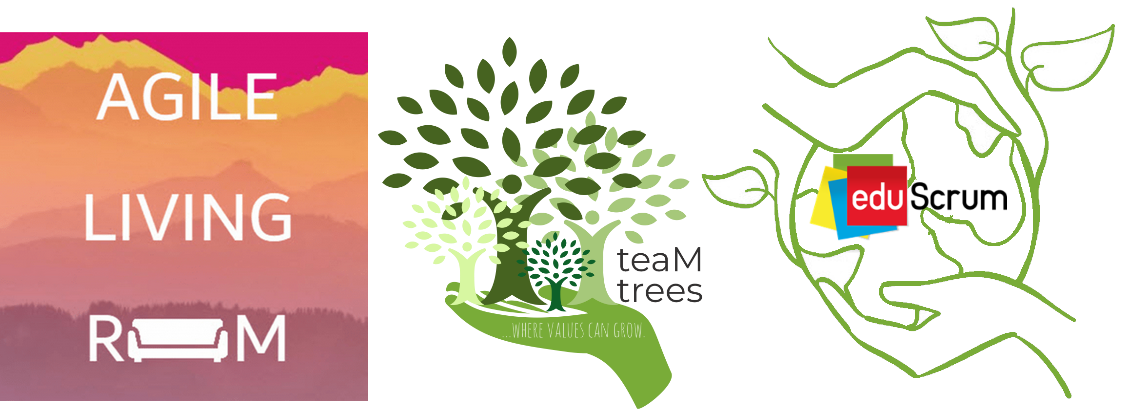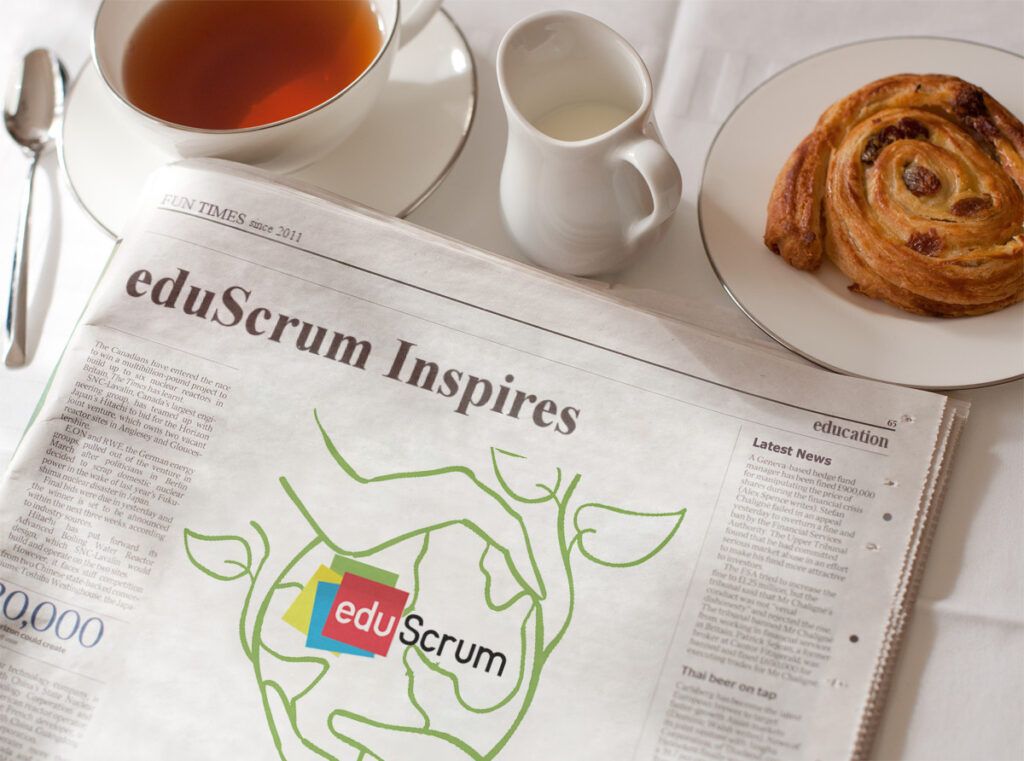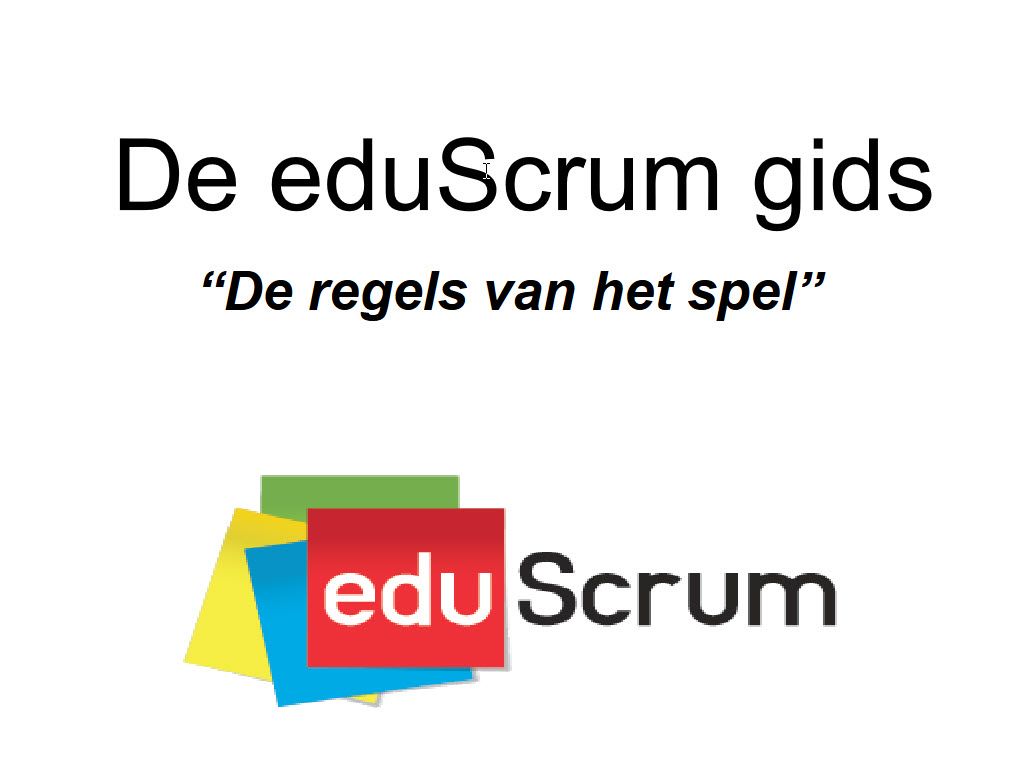Welcome to the eduScrum Community
Here you can explore what eduScrum is about, how it works, which sessions you can join, which resources you can use, and where you can find more info about eduScrum in your country. Do you have any questions? Get in contact with us via email or join one of the upcoming Welcome Tea Sessions. We would love to meet you.

Getting started
About eduScrum & how it works
eduScrum Training & Sessions
Free Resources & Our Agile Living Room
Calendar , Projects & eduScrum News
eduScrum worldwide & in your country
Get to know eduScrum if you haven't EXPERIENced it before
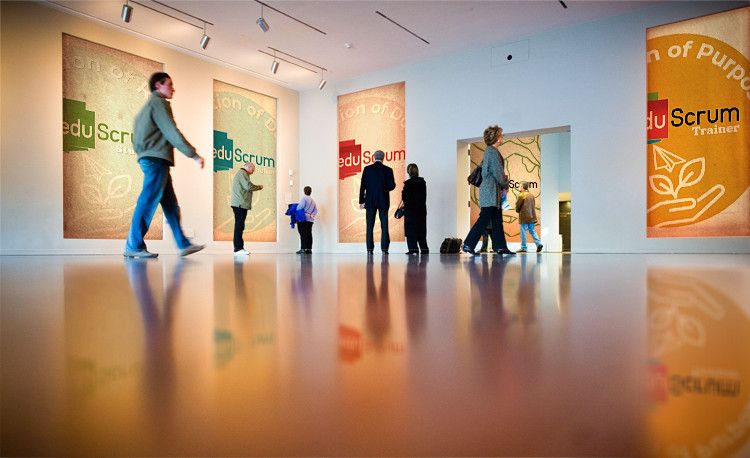
Get insights & materials
Get in touch with us
Join for free
- Welcome Tea Sessions
- Monthly World Journey Sessions
- Regular Art2BeAgileSessions
Learn more about eduScrum if you have started to EXPERIENce it

Get insights & materials
Give in your experience
Collaborate for free
- Welcome Tea Sessions
- Monthly World Journey Sessions
- Regular Art2BeAgileSessions
For CURRENT and aspiring eduScrum Practitioners
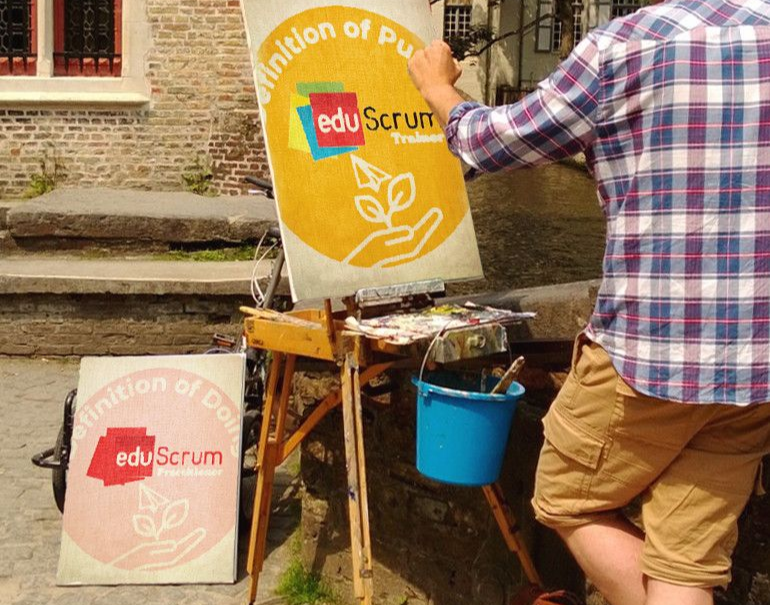
Discover your path
Get inspired
Inspire others
Feel free to contribute to our:
- Welcome Tea Sessions
- Monthly World Journey Sessions
- Regular Art2BeAgileSessions
- Current projects
"eduScrum can
give you wings But without the WHY you can't fly."
eduScrum: where authentic, collaborative learning begins - inspired by students, teachers and agilists learning together
About eduScrum
eduScrum turns education upside down!
eduScrum is an active form of collaboration, with which students in teams complete assignments according to a fixed rhythm. They plan and determine their own activities and keep track of progress. The teacher ‘gives’ the assignments, coaching and advice.
With eduScrum, students become the owners of their individual learning process, resulting in intrinsic motivation, fun, personal growth and better results. The teacher initially determines the WHY and the WHAT, the students determine the HOW. A groundbreaking way of educating, where personalized learning plays a very important role including the 4 Cs: Creativity, Collaboration, Communication & Critical Thinking.
Welcome to eduScrum
eduScrum, an adaptation of Scrum, is a framework for an active, collaborative process for the education system with an Agile mindset.
The value of eduScrum is in its simplicity, layering and transparency. It provides tools for creating projects, increasing personal growth, improving results and learning how to work as a team.
Why does eduScrum fit in today?
The world of work is changing dramatically. In companies and organizations where hierarchical control used to be applied, there is now an active search for the meaning of work and decision-making autonomy. Employees and managers want to experience the feeling of “being good at something” at work. There is also a need for companies to constantly innovate and respond quickly to ever-changing market conditions and customer demands. It is necessary to change the principle of how people work in organizations.
So why not start with our children? Let’s work together to make the world of education move with the times.
In recent years, people have become increasingly active in making this change happen in education as well. People are looking for transparent methods to let go of frontal education and are experimenting with new methodologies of participatory education. For this, one can use methods that are also used in large organizations.
One of the fundamental and also widely used methodologies of agile working is Scrum. In the Netherlands you can encounter Scrum in banks, mobile operators, energy companies and software development. Even local governments and the police are now embracing this agile way of working.
Scrum, a framework for an active, collaborative process for the education system with an Agile mindset. The value of eduScrum is in its simplicity, layering and transparency. It provides tools for creating projects, increasing personal growth, improving results and learning how to work as a team.
With eduScrum we make the translation to implement the agile mindset in a responsible way with focus on the learner within our education. This way, education seamlessly connects to the world our students will soon become part of. Through the power of eduScrum students develop knowledge and 21st century competencies and skills and this goes in good harmony with the changes now taking place in the business world.
As Andreas Schleicher, Director of the OECD Directorate for Education and Skills, noted in 2019, “Education is no longer just about teaching students alone; it is more important to teach them to develop a reliable compass and the navigational tools to find their own way in a world that is increasingly complex, volatile and uncertain. Our imagination.”
What is eduScrum?
In eduScrum, we move from teacher-directed teaching to student-directed and student-organized teaching. The teacher determines the WHY and the WHAT, the student teams determine the HOW. eduScrum is a co-creative and active form of collaboration, in which students work together in self-directed teams on an assignment or project. They make use of each other’s qualities and work according to a fixed rhythm in which they plan their own activities and keep track of progress. This way of working gives transparency and freedom within the given frameworks and ownership over their own learning process, both individually and in teams.
But above all it gives the students a lot of fun and active involvement. With eduScrum we offer the students ownership and responsibility as well as overview and structure. The students develop their ability to reflect on themselves, the team and the learning process.This way of co-creating creates trust, fun, intrinsic motivation, involvement and responsibility; the work is finished faster; the results are better. They learn that you can achieve more together. In addition, students experience positive personal development as a matter of course.
Scrum
Scrum is a well-developed method to let people work together intensively, pleasantly and with great results. Scrum was developed in the IT world in response to seemingly uncontrollable complex IT projects. In IT, Scrum is booming: more and more very large companies are working with Scrum. Other sectors are also switching to Scrum. The yields are enormous everywhere: speed, job satisfaction and results increase immediately.
Pedagogical Layer
eduScrum focuses on learning: learning more effectively and efficiently, learning to work together better, getting to know yourself better. eduScrum therefore has an extra ceremony of its own: forming teams based on additional qualities. Own instruments have also been developed that appeal and challenge young people. EduScrum thus puts a powerful pedagogical layer under Scrum.
eduScrum
eduScrum uses the powerful ceremonies, roles and instruments of Scrum. eduScrum is a framework for a co-creative process and guidance. For example, your own scrum board ‘the flap’ gives students an overview and structure, making the group work transparent. The stand-up with which each lesson starts provides focus and bond and makes you want to get to work. The retrospectives help students to continuously improve their way of working together. Not only in terms of subject matter, but they become aware of their own qualities. That contributes a lot to their personal growth and development. Always a step better …
eduScrum is easy, but hard to implement
Yields
eduScrum’s yields are comparable to those of Scrum. This way of co-creative collaboration generates pleasure, energy and responsibility; the work is finished faster; the results are better. They learn that you can achieve more together. In addition, students naturally experience positive personal development.
eduScrum Shu Ha Ri Learning Path:
Training, Courses & Community of Practice Sessions
"When eduScrum started in chemistry lessons in the Netherlands in 2011, and the eduScrum community of passionate educators and learners began to grow, we never had it in mind to require specific certifications. In keeping with the mindset that we had when we co-created eduScrum together with our students, colleagues and eduScrum Cert. co-trainers it was important that the eduScrum certification developed organically."
Willy Wijnands (Founder of eduScrum) & Kristina Fritsch (Co-Creator of eduScrum)
eduScrum Shu:
eduScrum Basic Training - about how to learn with eduScrum
Level 1:
eduScrum Basic Courses & Training
How to learn with eduScrum (Shu Learning)
“Follow the rule and follow the master.” (Shu) We offer different possibilities to step into the eduScrum Shu Ha Ri Learning Path by realizing this way of aquiring the eduScrum framework of agile learning, teaching and co-creating.
In this learning area you will mainly take the role of a student in various insightful and exciting ways. We would love to support you and learn together with you about the ‘art-to-be-agile’ from a strong eduScrum perspective.
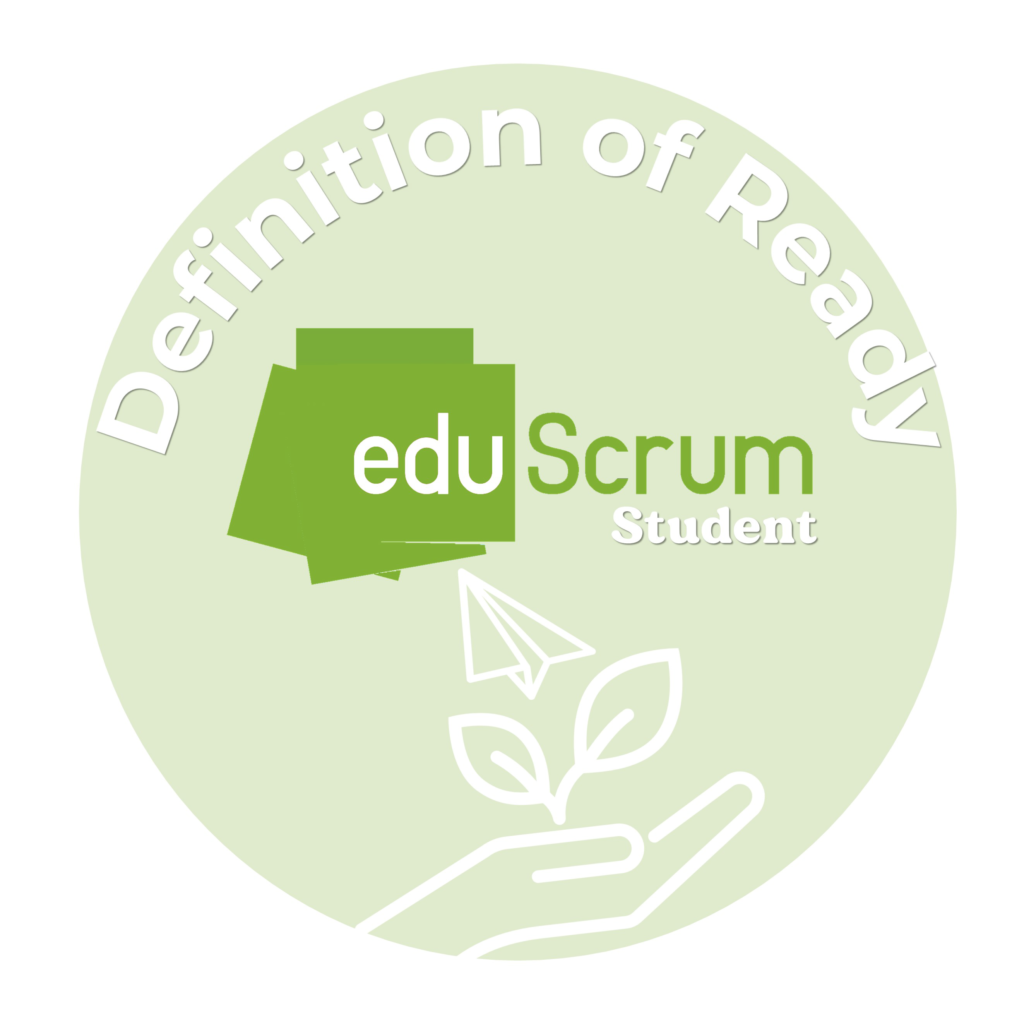
eduScrum Ha:
Explore eduScrum within our Community of Practice for your 1st time
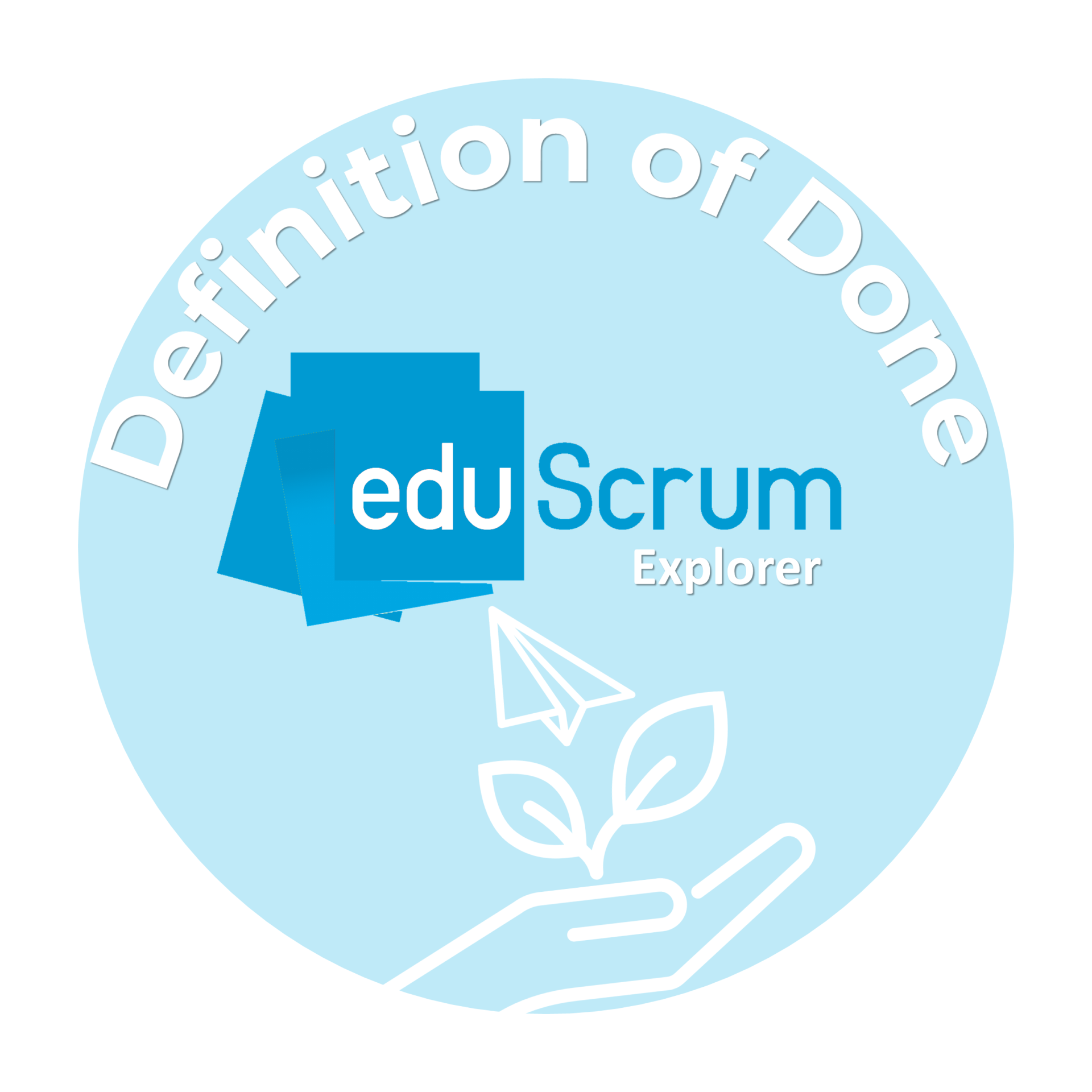
Level 2:
Community of Practice
How to teach with eduScrum (Ha Applying)
‘Break the rule and co-create with the master’ (HA) is the main
intention of this eduScrum Shu Ha Ri Learning path stage. Here you can
continue your first steps with eduScrum and shift your learner’s
perspective to your educational field and role of interest.
We are truly delighted when you take us on your agile learning journey and would love to support your steps!
eduScrum Ha:
Explore & Develop eduScrum further within our Community of Practice
Level 3:
Practicing eduScrum and the Art2BeAgile
by having practical workshops & courses on
how to practice agile learning inspired by eduScrum
As eduScrum Community we like to meet up and learn with different kinds of like-minded people from all over the world in various fields of education and co-creation. eduScrum Certified Trainers learn together with eduScrum Certified Students, Teachers and Practitioners. We think about gaining further insights about learning or developing further aspects of agile learning. Also passionate educators and interested guests beyond the eduScrum Community are whole-heartedly welcome to join our Art2BeAgile sessions. eduScrum Certified Teachers and Trainers can get their ‘eduScrum Certified Practitioner – Definition of Doing’ annual certificate by being actively involved in the developments within our eduScrum community.
Feel welcome to have a look at the upcoming sessions and take
this invitation as an open door to discover or rediscover more about
learning, teaching and co-creating in an agile way.
– no requirements needed for entering the eduScrum Shu Learning area
–
Certification: annual eduScrum Certified Practioner – Definition of
Doing (if you are an eduScrum Cert. Teacher, Practitioner or Trainer)
–
next possible steps: entering all areas of the eduScrum Shu Ha Ri
Learning path (proof of being an ‘eduScrum Certified Practioner –
Definition of Doing’ needed)
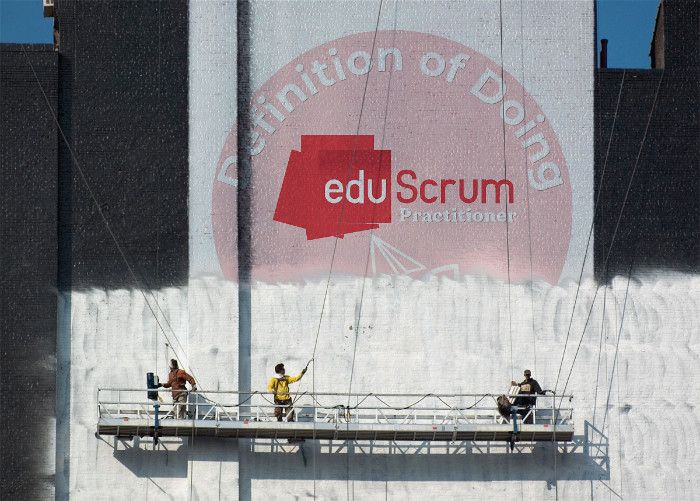
eduScrum Ri:
Train-the-Trainer - about how to train others to learn and teach with eduScrum (Ri Mastering)
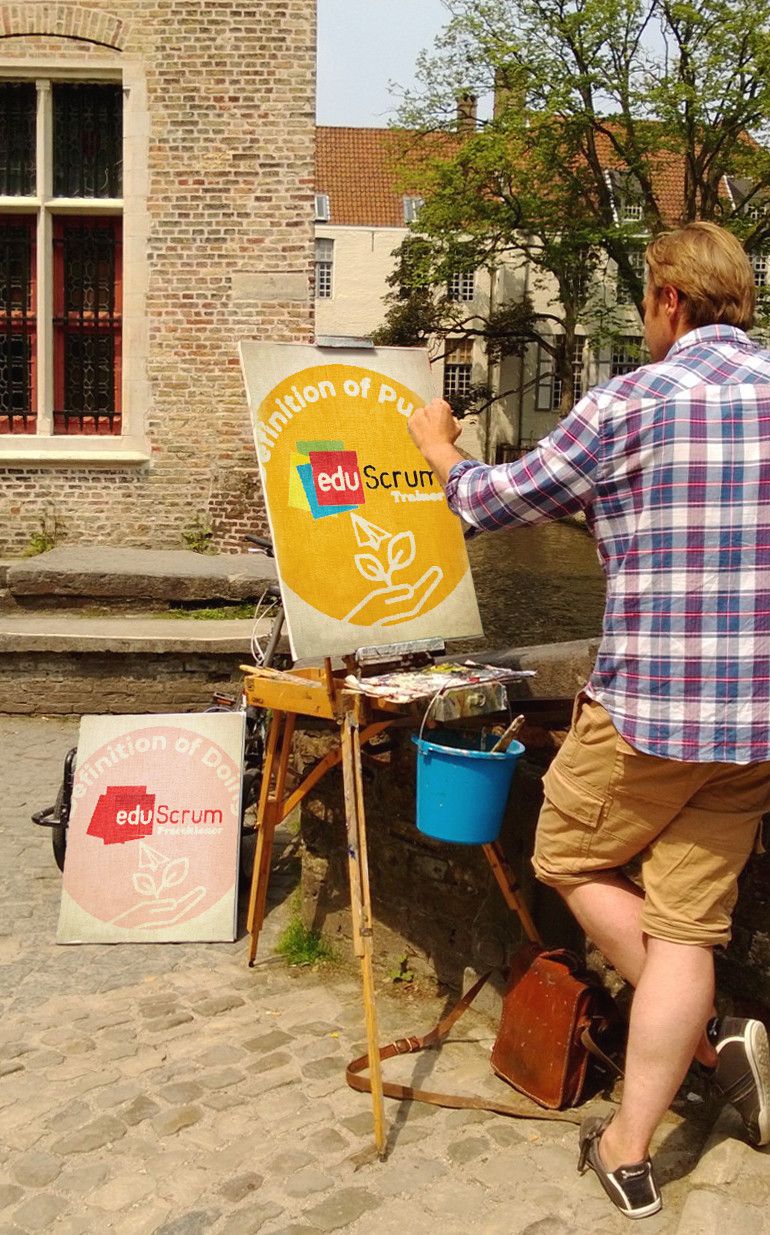
eduScrum Train-the-Trainer:
Develop your agile ways of teaching, collaborating and learning within our community of eduScrum Certified Trainers
This beautiful learning area is one impressive result of the close and engaged work of hundreds of passionate learners and educators from all over the world. We are really proud and grateful for what the community of eduScrum Certified trainers, friends and supporters have realized within just one decade of eduScrum! THANK YOU!
Join our Welcome Tea Sessions
In our Welcome Tea Sessions, you can get in contact with the international eduScrum® Team. If you would like to meet someone from your country, just give us a hint, and we would like to arrange a meeting with your eduScrum® trainer nearby. Additionally, we give in each session insights into one topic of the online course ‘Keystones of Agile Learning – the eduScrum point of view’.
In unseren Welcome Tea Sessions können Sie mit dem internationalen eduScrum® Team in Kontakt treten. Wenn Sie jemanden aus Ihrem Land treffen möchten, geben Sie uns einfach einen Hinweis, und wir arrangieren gerne ein Treffen mit Ihrem eduScrum® Trainer in Ihrer Nähe. Zusätzlich geben wir in jeder Sitzung Einblicke in ein Thema des Online-Kurses ‘Keystones of Agile Learning – the eduScrum point of view’.
Resources and Library
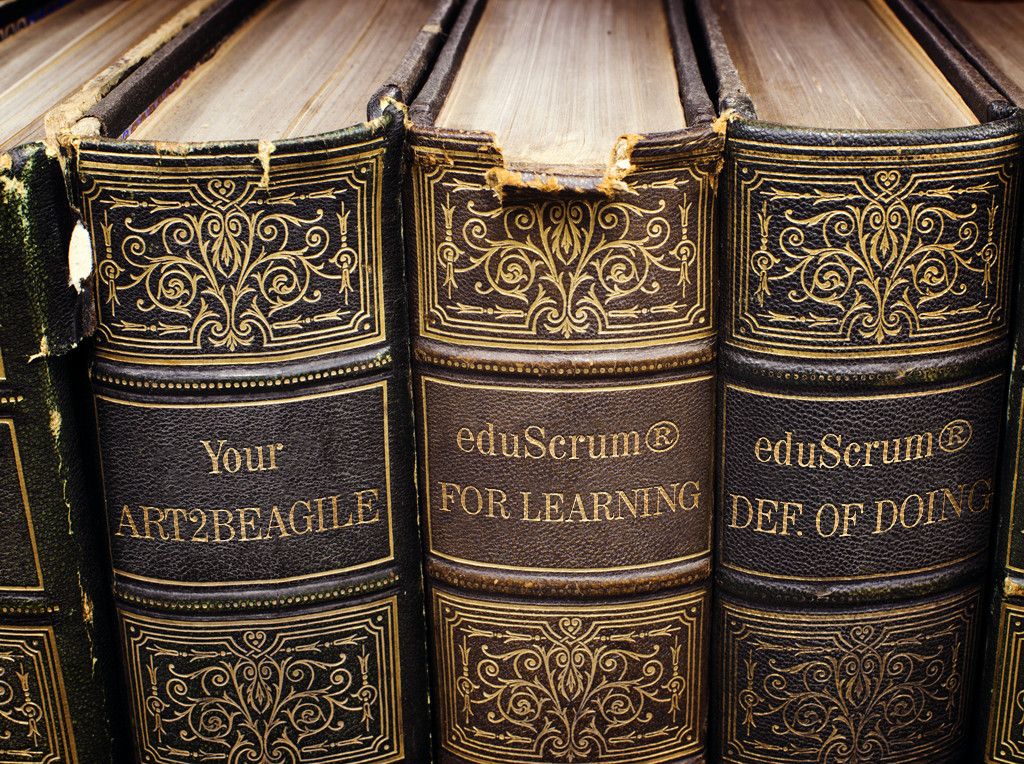
Agile Living Room - Our Learning Space
We’re are looking forward to meeting you soon, there!
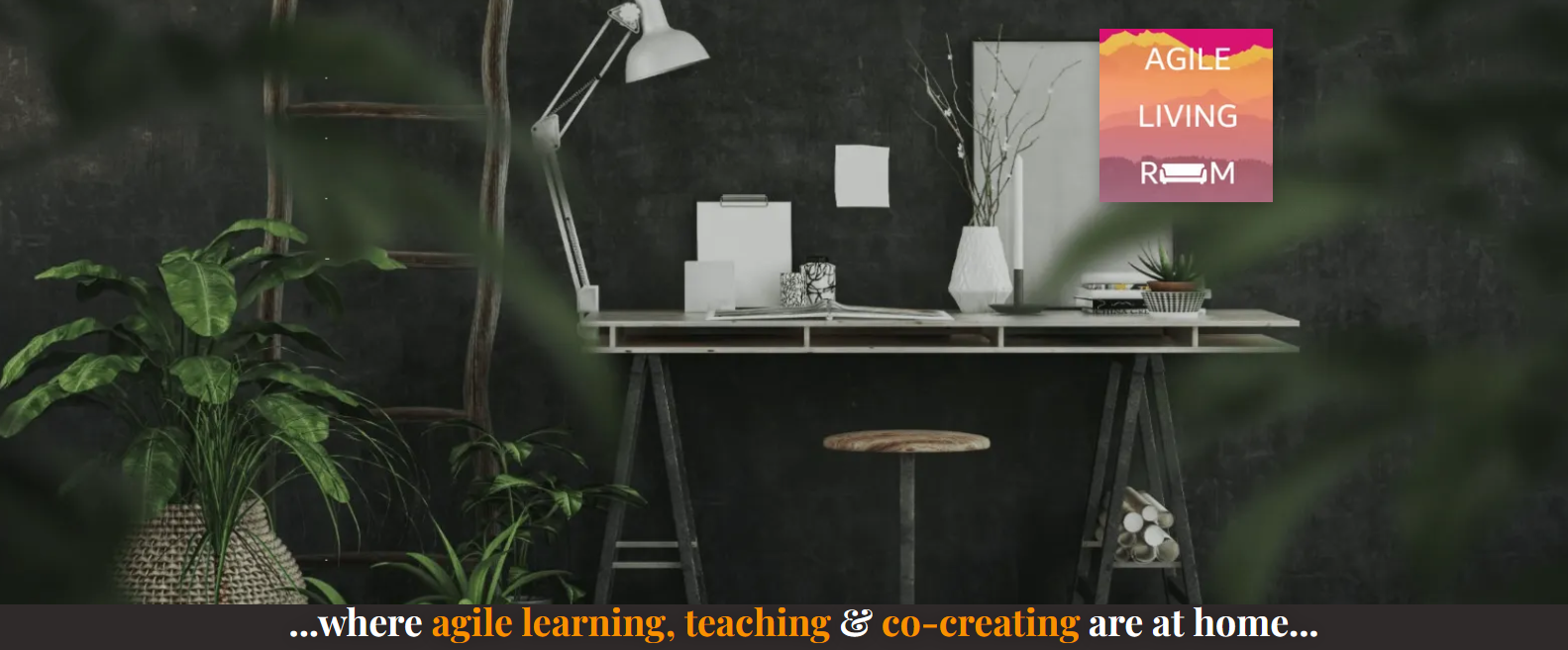
eduScrum Community Agenda
The Agenda including all info can be opened here:
Current Events
Current Projects
eduScrum Latest News
Agile Living Room - Our Learning Space
We’re are looking forward to meeting you soon, there!
eduScrum Map
Our eduScrum Core Team since 2018
Willy
Wijnands
Founder of eduScrum & Train-the-Trainer
Region(s):
The Netherlands, Central Europe, worldwide, international training & sessions
Languages:
Dutch, English
Kristina
Fritsch
Co-Creator of eduScrum, Train-the-Trainer, eduScrum Cert. Trainer
Region(s):
Germany, Central Europe, worldwide, international training & sessions
Languages:
German, English
Claudia
Struijlaart
Co-Creator of eduScrum,
and
eduScrum Cert. Trainer
Region(s):
The Netherlands, Central Europe
Languages:
Dutch, English
Ekaterina
Bredikhina
Co-Creator of eduScrum,
and
eduScrum Cert. Trainer
Region(s):
Russia
Languages:
Russian, English
Emmanuel
Ponchon
Co-Creator of eduScrum,
and
eduScrum Cert. Trainer
Region(s):
,Western/South Europe
Languages:
French, Spanish, English
Paulina
Orbitowska-Fernandez
Co-Creator of eduScrum
and
eduScrum Cert. Trainer
Region(s):
Poland, Eastern Europe,
Languages:
Polish, Spanish, English
Mark
Postema
Co-Creator of eduScrum,
and
eduScrum Cert. Trainer
Region(s):
Czech Republic, Eastern Europe
Languages:
Dutch, English
Ximena
Valente Hervier
Co-Creator of eduScrum,
and
eduScrum Cert. Trainer
Region(s):
South America
Languages:
Spanish, Portoguese, English
Get to know more of our eduScrum Cert. Trainers
Are you looking for an eduScrum Certified Trainer you can contact in your country? If so, you might find one of our eduScrum Certified Trainers in this map... If you can't find a trainer, please, get in contact with us and/or join our Welcome Tea Session!
eduScrum Coordinators & Make-the-Community-Happen-Team
Ekaterina, eduScrum Co-Creator & Cert. Trainer
Discover the WHY of eduScrum
The collaborative nature of eduScrum leads to personal development, intrinsic motivation extrinsic motivation, based on four building blocks: trust, communication, commitment and responsibility. Collaboration requires mutual trust between learners. In addition, communication is very important, so that they learn to be themselves and dare to say what they think. These two building blocks create commitment within the team, which in turn leads to accountability. The four building blocks relate not only to the team as a whole, but also to individual students. By doing so, eduScrum ensures that students get the best out of themselves and their team. eduScrum does not make it “easy” for students. We want to get the best out of students with eduScrum.
How can we prepare students for jobs that have not yet been created, for societal challenges that we cannot yet imagine, and for using technologies that have not yet been invented?
How can we equip them to thrive in an interconnected world where they must understand and appreciate different perspectives and worldviews, interact respectfully with others, and take responsible action for sustainability and collective well-being?
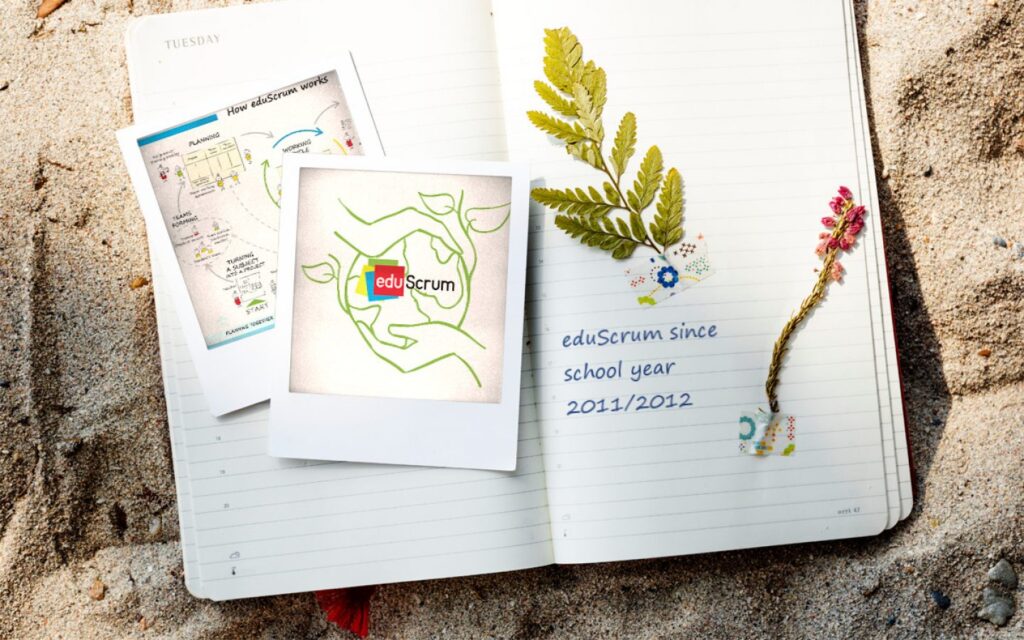
With eduScrum students work together in an energetic, targeted, effective and efficient way.
Discover the How of eduScrum
To achieve the WHAT and WHY, it is important that our educational system also adapts. By offering the traditional subjects according to the eduScrum methodology, students already develop much broader than just cognitively. At a more advanced stage, even the boundaries between subjects can blur and one provides cross-curricular education. How do we do it?
The teacher teaches the students to work in a team according to a set ceremonies in a transparent way. As the students and the teacher become more experienced in the eduScrum process, the teacher’s role changes to that of an expert, coach and process facilitator. This will support the teams at the time when there are subject matter questions or questions related to the process.
The teacher will have to give the students a lot of space but above all a lot of trust to make this methodology succeed. By delivering the material to be treated in project form, it will become more challenging for students, with the effect that students are more involved and more productive, which will lead to better results (cognitively and socially). The 21st century competencies and skills such as for example problem solving and critical thinking, creativity, communication, cooperation, curiosity, initiative, perseverance, adaptability, leadership and social and cultural awareness are addressed.
Each cycle ends with a self-reflection and giving feedback to their teammates. This way, they continuously improve their own work and learning process and that of the team. Individual tests (summative or formative) can also be taken as usual, giving the students an additional reflection on their achieved cognitive level.
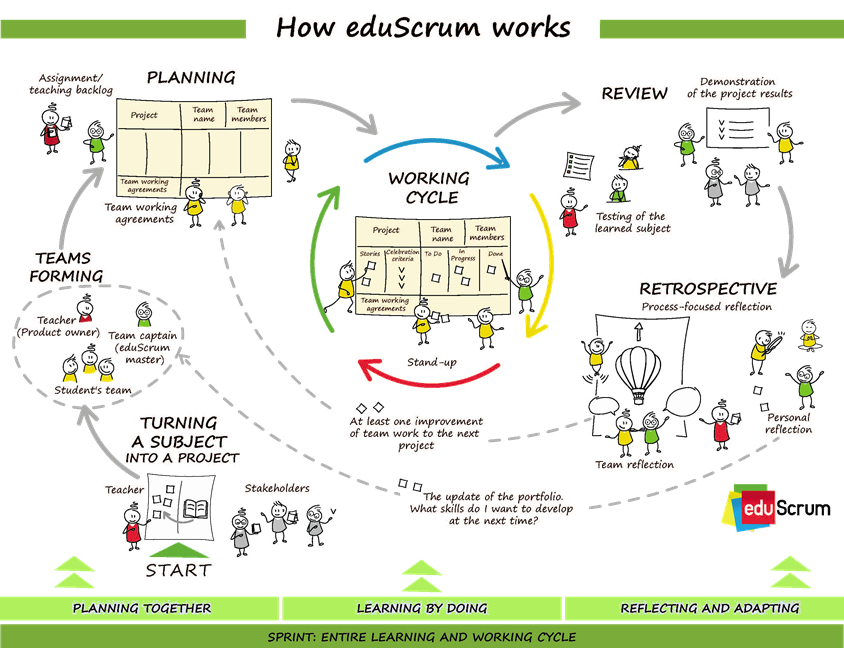
Discover the WHAT of eduScrum
What might be useful to apply eduScrum for your learning, teaching aims and projects?
eduScrum Training & Workshops
An eduScrum training consists of 2 days and is hands-on where the instructors get to experience the power of eduScrum and the iterative process for themselves. The training has a pragmatic approach, so you can feel and understand the WHY of eduScrum.
During the training you will experience the different facets of eduScrum such as the co-creative process development, personal development, personalized learning, team development, reflection and tailored guidance. You will experience the added value of the different facets yourself and then also feel the added value for the learner.
Furthermore, you learn how to apply the 21st century skills, such as communication, cooperation, creativity and critical thinking, within eduScrum.
After the training, you will be able to apply eduScrum directly and concretely in your own practice and transform a theme, topic or project into the eduScrum way of working, write an assignment with a clear why, and place content in context that includes the curriculum criteria.
Working with eduScrum changes your role from teacher to expert, coach and facilitator of the learning process. You learn to apply eduScrum when creating your own projects. “Practice what you preach!
After the eduScrum training you will be able to:
– Convert a topic into the eduScrum way of working and write an assignment with a clear why and place the content in a context, where the curriculum criteria are included,
– apply the ceremonies, artifacts and process of eduScrum,
– develop students’ 21st century skills,
– coach students and teams in their personal and team development process and guide them to be self-organizing,
– encourage learners to use their freedom in teams, so that they become more curious and enjoy learning.
The cost of an eduScrum training
– A 2-day Dutch or German eduScrum Basic Training, in person, regularly costs € 600 per participant.
– The International online eduScrum Basic training: € 375,- (because we have a sponsor).
– For 10 participants, a 2-day eduScrum training costs € 4,000.
– For each additional participant, there is an additional € 400.
– The price is based on in-house training, in the Netherlands and excluding travel costs.
– Prices for other specific requirements are available on request.
– After this training you will receive a certificate and can continue your eduScrum Shu Ha Ri Learning Path.
Training dates and times are determined in consultation. Open training dates are available here.
eduScrum Workshops
We also give activating workshops, where participants can experience what eduScrum is and how it works. This workshop is a good basis for determining whether eduScrum is right for you. This 2-hour workshop costs € 500, – (excluding travel expenses) for a maximum of 20 participants.
The workshop dates and time are determined in consultation. Open sessions are available here.
Connect with us
Who we are / Wer wir sind
Unser Ziel ist es, Kurse, Aktivitäten und unsere Community für leidenschaftlich Lehrenden, Agilisten und Lernenden zur Verfügung zu stellen, um gemeinsam etwas zu schaffen. Wir arbeiten intensiv daran, dass sich jeder Lernende und Lehrende entfalten kann und unterstützt wird, während er seine Fähigkeiten in der Kunst des agilen, projektbasierten Lernens verbessert.
Featured links
Get in touch
-
worldwide at home :-)
-
info@eduscrum.nl
